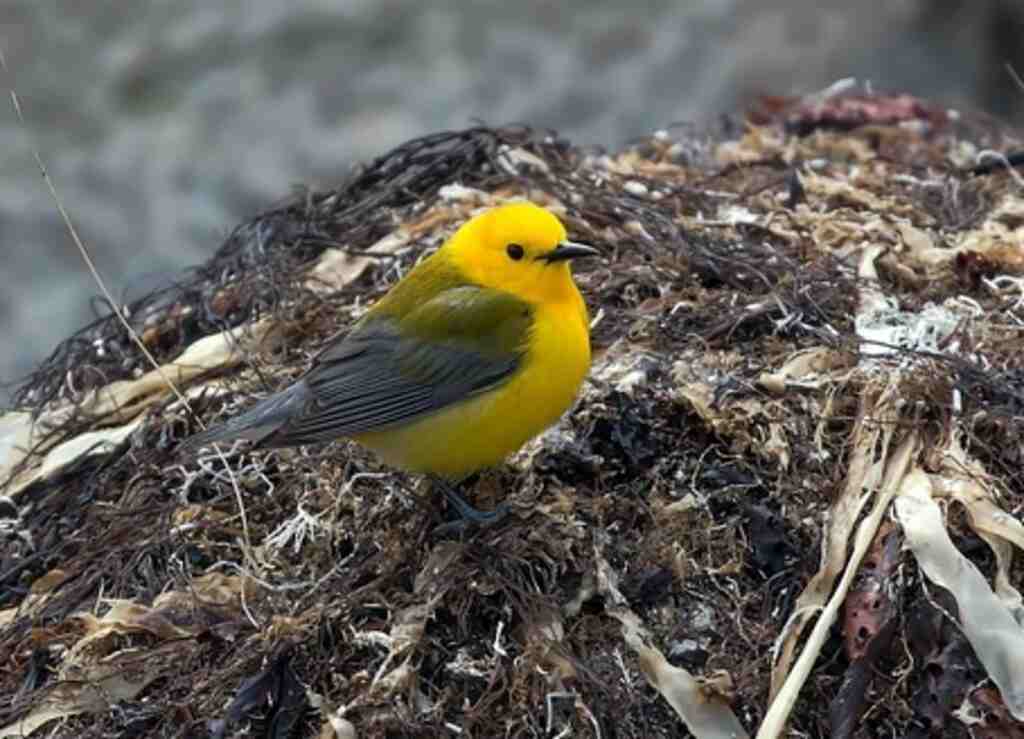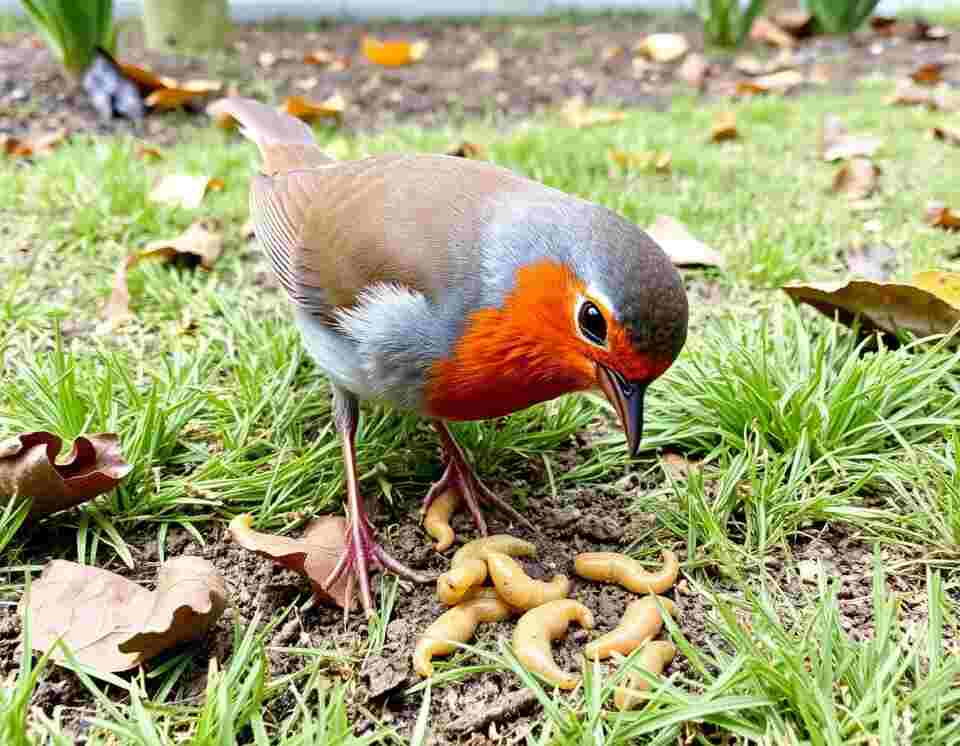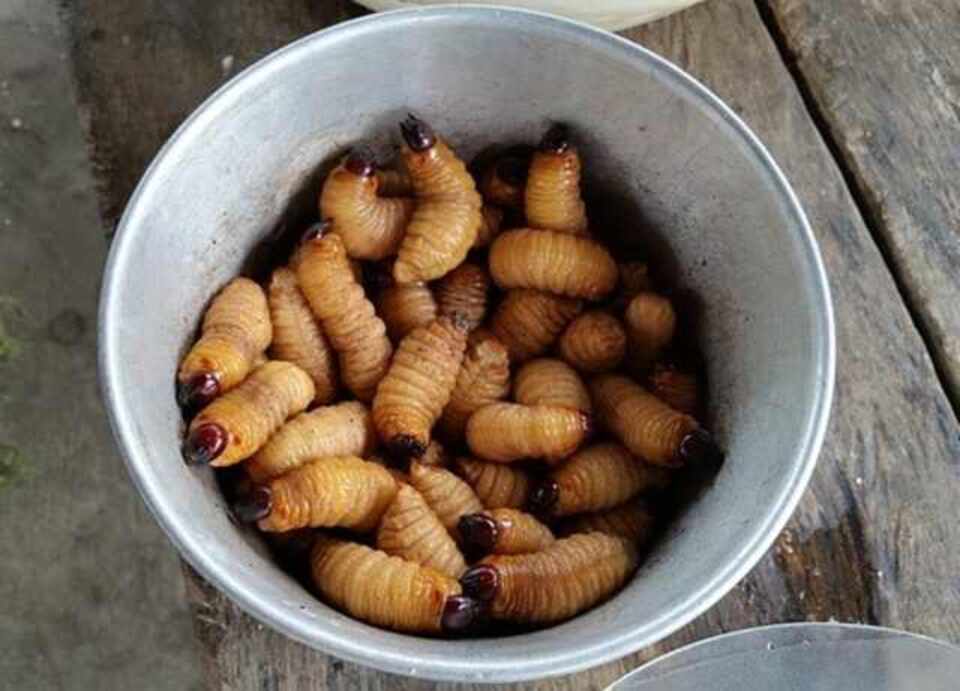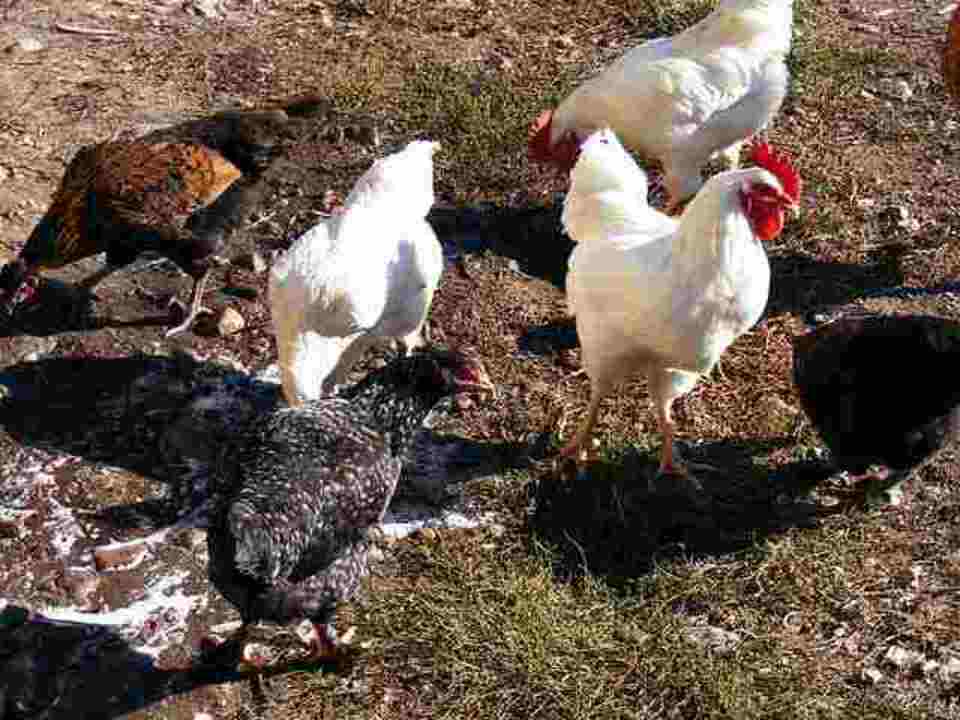You might be wondering, do birds eat maggots? The answer is yes. Many bird species, including crows, ravens, and starlings, will readily eat maggots. These larvae are a rich source of protein, making them an ideal food source, especially for birds in the wild. In this article, we’ll explore why maggots are part of some birds’ diets and how they fit into their feeding habits.
Table of Contents
- 1 Why Do Birds Eat Maggots? The Benefits
- 2 A Personal Look at Maggot Feasting
- 3 Which Birds Eat Maggots? Notable Species
- 4 Expanded Insights on Bird Behavior
- 5 Are Maggots Safe for Birds? Key Facts
- 6 Expert Tip for Backyard Bird Enthusiasts
- 7 Maggot Alternatives to Attract Birds
- 8 The Role of Maggots in Nature’s Food Chain
- 9 Fun Facts About Birds Eating Maggots
- 10 Final Thoughts
- 11 Author
Why Do Birds Eat Maggots? The Benefits
Maggots are a powerhouse of nutrition for birds. These tiny larvae are packed with proteins, fats, and essential nutrients that help birds thrive. Birds rely on high-energy foods like maggots to sustain themselves during demanding periods such as breeding, migration, or molting. Here’s why maggots are such a valuable food source:
- Rich in Protein: Protein is essential for muscle development and repair in birds. Maggots provide an easily digestible form of protein that supports growth and energy needs.
- High in Fat Content: Fats are a concentrated energy source that helps birds maintain their activity levels, especially during colder months when food is scarce.
- Soft and Easy to Digest: Unlike hard-shelled insects, maggots have soft bodies that make them easy for both adult birds and chicks to consume.
- Abundant in Nature: Maggots are commonly found in decaying organic matter, making them an easily accessible food source for wild birds.
A Personal Look at Maggot Feasting
As someone who loves observing wildlife in my garden, I once noticed a robin repeatedly visiting my compost pile. Upon closer inspection, I saw it picking out maggots from the decomposing material with precision and enthusiasm. It was fascinating to see how nature provides sustenance in unexpected ways!
Which Birds Eat Maggots? Notable Species
Not all birds eat maggots, but many species, particularly insectivorous and opportunistic feeders, include them in their diets. Below is a table showcasing some of the bird species that are known to eat maggots:
| Bird Type | Examples | Feeding Behavior |
|---|---|---|
| Ground-Foraging Birds | Robins, Thrushes | Search for maggots on soil or compost piles |
| Insectivorous Birds | Wrens, Bluebirds | Hunt for maggots among other insects |
| Opportunistic Feeders | Crows, Magpies | Consume maggots found in carrion or garbage |
| Domesticated Birds | Chickens, Pigeons | Peck at maggots in farmyards or urban areas |
Expanded Insights on Bird Behavior
- Robins and Thrushes: These ground-foraging birds often find maggots while rummaging through leaf litter or compost heaps. Their sharp eyesight helps them spot even the smallest larvae.
- Wrens and Bluebirds: As insectivores, these birds actively hunt for soft-bodied insects like maggots to feed themselves and their chicks. Bluebirds are particularly fond of such high-protein snacks during nesting season.
- Crows and Magpies: Known scavengers, these intelligent birds will eat maggots found in decomposing carcasses or waste materials. Their adaptability allows them to thrive in both urban and rural environments.
- Chickens and Pigeons: Domesticated birds like chickens readily consume maggots when they come across them while pecking at the ground. Pigeons may also eat maggots if other food sources are scarce.
Are Maggots Safe for Birds? Key Facts
While maggots are a great source of protein and fat for birds, not all maggots are safe to eat. Here are a few things to keep in mind before offering them to your backyard birds:
- Contamination Risk: Maggots found in rotting meat, garbage, or chemically treated waste may carry harmful bacteria or toxins. Feeding birds contaminated maggots can lead to illness. To keep birds safe, it’s best to avoid wild maggots and instead offer mealworms or black soldier fly larvae, which provide similar nutrition without the risks.
- Monitor Feeding Areas: Placing maggots outdoors can attract unwanted pests like rats, ants, and flies. Clean feeding areas regularly and avoid leaving excess food out overnight.
- Offer in Moderation: While maggots are nutrient-rich, birds need a balanced diet that includes seeds, fruits, and other insects. Overfeeding maggots may lead to nutritional imbalances.
If you’re looking for a safer alternative, dried mealworms and insect-based suet cakes are excellent options that provide the same protein boost without the risks’ are generally safe for birds to eat, there are some precautions you should take if you’re intentionally feeding them to backyard birds:
- Source Matters: Ensure that the maggots come from clean environments free of harmful chemicals or pesticides. Maggots found on treated meat or toxic substances can harm birds if ingested.
- Avoid Overfeeding: Although nutritious, feeding too many maggots can lead to an unbalanced diet for birds. Offer them as part of a varied diet that includes seeds, fruits, and other insects.
- Monitor Feeding Areas: If you’re placing maggots outside for birds, ensure the feeding area is clean to avoid attracting unwanted pests like rats or ants.
Expert Tip for Backyard Bird Enthusiasts
For a safer option, consider purchasing black soldier fly larvae from pet stores or online retailers specializing in bird feed. These larvae are raised specifically for feeding purposes and offer similar nutritional benefits without the risks associated with wild-caught maggots.
Maggot Alternatives to Attract Birds
If handling live maggots isn’t your thing (and let’s face it—it’s not for everyone), there are plenty of alternatives that mimic their nutritional value while being easier to manage:
- Dried Mealworms: These are a favorite among insect-eating birds like sparrows and blue jays. Simply scatter them on the ground or place them in a feeder.
- Insect Suet Cakes or Pellets: These combine fat with dried insects like mealworms or fly larvae to create a high-energy food source perfect for winter months.
- Protein-Enriched Birdseed Mixes: Some premium birdseed blends include dried insects or larvae to attract insectivorous species.
By offering these alternatives in your garden or backyard feeder stations, you can attract a variety of bird species without needing to handle live insects.
The Role of Maggots in Nature’s Food Chain
Maggots play an essential role in the ecosystem, beyond just being bird food. They help break down decomposing organic material into nutrient-rich matter that enriches soil health. By consuming maggots, birds contribute to this natural recycling process while benefiting from the energy boost these larvae provide.
Additionally, by eating maggots found in carrion or waste materials, scavenger species like crows help reduce potential sources of disease in the environment.
Fun Facts About Birds Eating Maggots
- Some bird species actively seek out decomposing animal remains because they know it’s a hotspot for finding protein-packed maggots.
- During harsh winters, when other food sources become scarce, certain birds rely heavily on fat-rich foods like maggots to survive.
- Even domesticated chickens have been observed enthusiastically pecking at piles of manure where fly larvae thrive!
Final Thoughts
Birds eating maggots might seem unappetizing from a human perspective, but it’s an incredible example of nature’s efficiency at work! By consuming these nutrient-rich larvae, birds not only sustain themselves, but also contribute to maintaining ecological balance.
Whether you’re looking to attract more feathered friends to your backyard or simply want to understand their dietary habits better, knowing about their relationship with maggots offers valuable insights into avian behavior and ecology.
So next time you spot a robin hopping around your compost pile or see starlings scavenging near trash bins—remember—they’re just enjoying one of nature’s most nutritious snacks!





